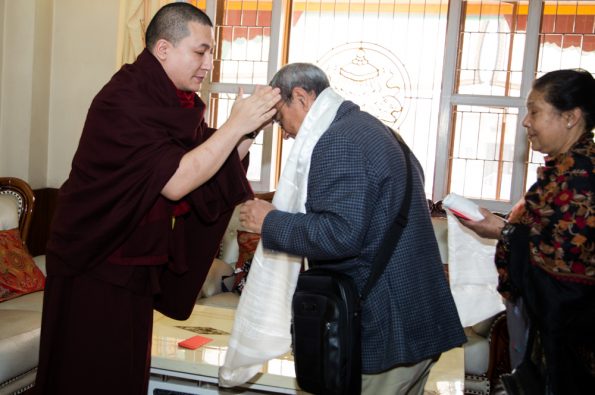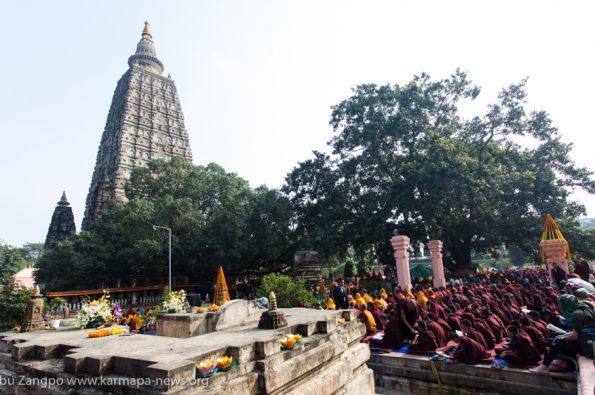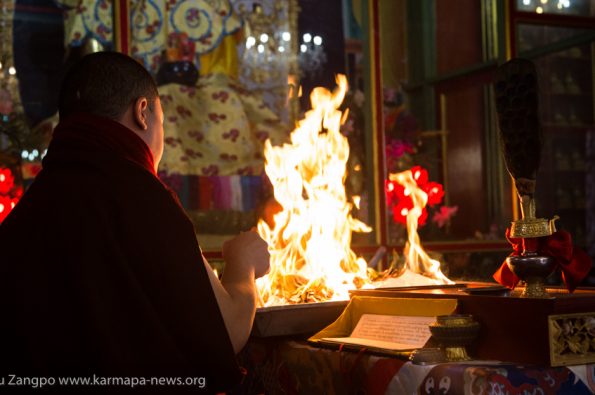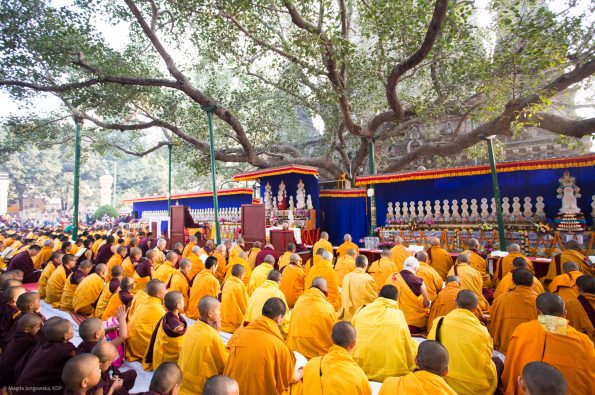His Holiness Gyalwa Karmapa performs a puja for the deceased and transmits the empowerment of Kubera
On May 18th His Holiness Gyalwa Karmapa performs a puja for the deceased and transmits the empowerment of Kubera.
In the morning Gyalwa Karmapa performed the Red Chenresig Jang Chok, a ritual for the deceased.
Through this practice, due to the compassion and blessing of Red Chenresig, the consciousness of deceased persons with the necessary merit and karmic connections can be liberated into the Pure Land of Great Joy.
His Holiness’ arrival in the event hall was heralded by the sound of gyalings and the fragrance of incense – while devotees formed two rows, creating a passageway for Him to pass through.
No effort had been spared in preparing the hall for this exceptional event: the stage was lavishly adorned with thangkas, flowers and a magnificent mandala, while the hall below featured wish-fulfilling trees and even a stupa, set against a background of snow-covered mountain ranges.
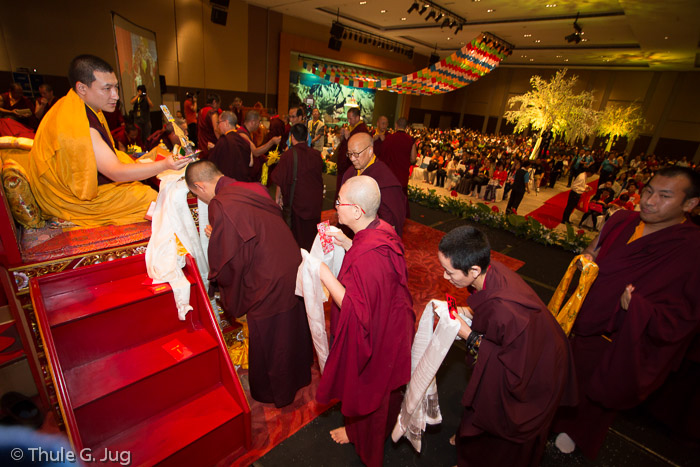
Kubera Empowerment at Pullman Hotel
In the evening His Holiness transmitted the blessing empowerment of Kubera, a wealth deity. While the practice of all wisdom aspects will ultimately lead to the same absolute result – perfect enlightenment – each one is also associated with certain relative benefits along the path. In the case of Kubera this relative accomplishment is related to the enhancement of wealth.
However, in his introductory teaching Gyalwa Karmapa pointed out that true wealth cannot be achieved through material comfort alone but needs to be associated to the development of our inborn potential.
We all relate to this deity… a deity that provides all the needful things and the comforts of life – basically the wealth of life… So this empowerment today is about that, but probably one thing that we have to make clear, is that the deity of wealth, from a Buddhist perspective, is not so much about obtaining “outer wealth”, as I call it […]
To simplify I would say that wealth comes in two parts: inner wealth and outer wealth. Of course these two are dependent on each other – so what I think we have to focus on is the balance, the interdependency of the two […]
To sum it up, the inner wealth would be none other than the understanding of oneself, one’s true nature in terms of the various qualities that make us a good decent human being, which would be none other than compassion, wisdom, loving kindness, courage, patience, ethics, generosity […]
So therefore we should not be influenced by ideas that when we recite certain exotic words or phrases or imagine certain forms, that all of a sudden there will be some kind of human-like being that would grant us all the outer wealth that we seek. There is that obvious kind of interpretation, but if we really go into the depth of the practice of Namtöse, from the very beginning to the very end it really talks about the inner qualities that we have. It begins with thinking of other sentient beings, beings other than oneself. It begins with developing respect towards those who will provide genuine support, genuine guidance, such as Buddha, dharma and sangha, and it also emphasizes the fact that all of this is timeless, that all of these good qualities are founded on timeless essence, or timeless nature – in other words emptiness. It begins like that, and continues like that, and it also completes like that at the end. So it is that kind of setting, that kind of attitude that helps us to really understand that true wealth comes from developing a comprehensive, coherent understanding of one’s nature…
This is something you should keep in your mind whenever you practice the deities of wealth.Then, if we have that basis, then when there are positive circumstances anything can happen. Then of course, suddenly, miraculously, a Namtöse might appear right in front of you and grant your wishes. But without that basis it is quite far-fetched.”













